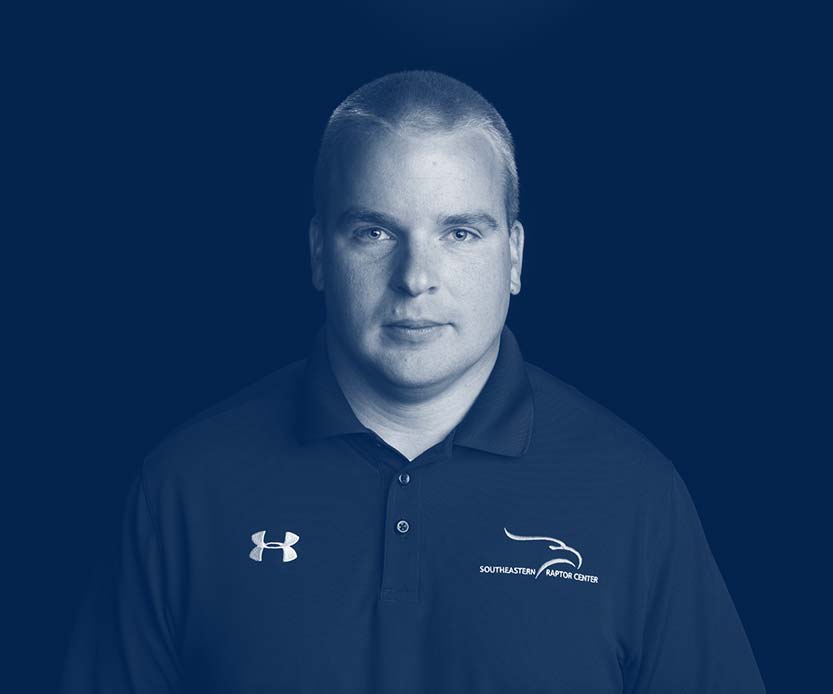

It’s a job most Auburn fans would love—spending the day working with Auburn’s eagles and overseeing the iconic eagle flight before home football games. For Andrew Hopkins, that dream job is his reality. Hopkins, assistant director of raptor training and education at the Southeastern Raptor Center in the College of Veterinary Medicine, is responsible for training the eagles and practicing with them for their moment in the spotlight.
Approximately sixteen minutes before kickoff of every home game this year, fans will see Spirit or Aurea take flight around Jordan-Hare Stadium, an event ESPN calls the SEC’s greatest pregame tradition. The majestic flights give fans chills, even on the hottest of Alabama days. Hopkins plays an integral role in ensuring each flight is a success—for the fans and for the eagles.
For an eagle to be chosen to fly during a game, its attitude and weight must be checked by the handlers.
“Anytime you release an eagle free in the sky, you never know what it’s going to do,” said Hopkins. “We’re looking at them all week to really see what their game face is going to be like.”
Hopkins graduated from Auburn in 2011 with a degree in zoology. He volunteered at the Raptor Center starting his freshman year and attended every eagle practice he could.
“This is a really great opportunity for me,” said Hopkins. “It’s been a dream job.”
The Raptor Center has a rehabilitation unit that focuses on helping injured, orphaned or ill wild raptors. This includes native hawks, owls, eagles, falcons, kites and vultures. The goal is to return raptors into the wild after being rehabilitated and to provide hands-on experience to volunteers and veterinary students.
Those who can’t be released into the wild become permanent residents of the Raptor Center. The center currently has 23 permanent residents and makes educational appearances across the southeast.
“It’s really fun to be able to go out to these communities and really be an ambassador for Auburn University,” Hopkins said. “We know that everywhere we go, we represent Auburn University and that’s something we really take a lot of pride in.”
The Raptor Center opens to the public each Friday for Football, Fans and Feathers—a raptor show and flight demonstration.

